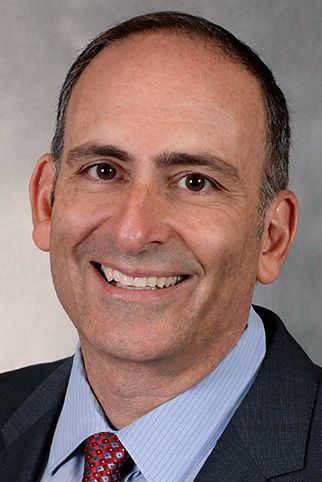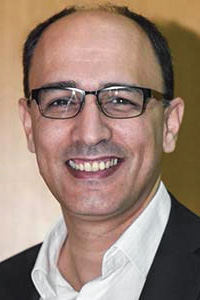

 The EU is reforming its legal framework concerning geographical indications (GI) protection and has put forward provisions expanding GI protection to domain names in two recent legislative proposals concerning agricultural products and craft/industrial products. In order to support greater GI protection on the internet, both proposals mandate the European Union Intellectual Property Office (EUIPO) to establish a "domain name information and alert system." more
The EU is reforming its legal framework concerning geographical indications (GI) protection and has put forward provisions expanding GI protection to domain names in two recent legislative proposals concerning agricultural products and craft/industrial products. In order to support greater GI protection on the internet, both proposals mandate the European Union Intellectual Property Office (EUIPO) to establish a "domain name information and alert system." more
 In the first article of this two-part blog series, we looked at how frequently domains were used by bad actors for phishing activity across individual top-level domains (TLDs) or domain extensions, using data from CSC's Fraud Protection services, powered by our DomainSecSM platform. In this second article, we analyze multiple datasets to determine the highest-threat TLDs, based on the frequency with which the domains are used egregiously for a range of cybercrimes. more
In the first article of this two-part blog series, we looked at how frequently domains were used by bad actors for phishing activity across individual top-level domains (TLDs) or domain extensions, using data from CSC's Fraud Protection services, powered by our DomainSecSM platform. In this second article, we analyze multiple datasets to determine the highest-threat TLDs, based on the frequency with which the domains are used egregiously for a range of cybercrimes. more
 One of the consequences of the war between Russia and Ukraine is that Russia has largely stopped participating in many large worldwide web applications. Russia has blocked Facebook and Twitter. Other applications like Apple, Microsoft, TikTok, Netflix, and others have withdrawn from Russia. The European Union is in the process of trying to block Russian-generated content, such as the state-owned news outlets of RT (formerly Russia Today) and Sputnik. more
One of the consequences of the war between Russia and Ukraine is that Russia has largely stopped participating in many large worldwide web applications. Russia has blocked Facebook and Twitter. Other applications like Apple, Microsoft, TikTok, Netflix, and others have withdrawn from Russia. The European Union is in the process of trying to block Russian-generated content, such as the state-owned news outlets of RT (formerly Russia Today) and Sputnik. more
 A domain name consists of two main elements: the second-level domain name to the left of the dot - often consisting of a brand name or relevant keywords - and the domain extension or top-level domain (TLD) to the right of the dot. Domain names form the key elements of the readable web addresses allowing users to access pages on the internet and also allowing the construction of email addresses. more
A domain name consists of two main elements: the second-level domain name to the left of the dot - often consisting of a brand name or relevant keywords - and the domain extension or top-level domain (TLD) to the right of the dot. Domain names form the key elements of the readable web addresses allowing users to access pages on the internet and also allowing the construction of email addresses. more
 In 2022, the Internet world was shaken by big contradictions. On the one hand, efforts to constitute a stable and secure framework for a safe cyberspace made substantial progress. The UN got a new Tech Envoy. The UN-based Internet Governance Forum (IGF) got a "Leadership Panel." The UN negotiations on cybersecurity and cybercrime produced constructive interim results. more
In 2022, the Internet world was shaken by big contradictions. On the one hand, efforts to constitute a stable and secure framework for a safe cyberspace made substantial progress. The UN got a new Tech Envoy. The UN-based Internet Governance Forum (IGF) got a "Leadership Panel." The UN negotiations on cybersecurity and cybercrime produced constructive interim results. more
 The recent adoption at the end of December of the new EU Directive for a high level of cybersecurity across the Union -- commonly referred to as "NIS2" - paved the way for important updates to the domain name system (DNS). Most significantly, Article 28 of NIS2 and its related recitals resolved any ambiguities about the public interest served by a robust and objectively accurate WHOIS system that permits legitimate access by third parties to data... more
The recent adoption at the end of December of the new EU Directive for a high level of cybersecurity across the Union -- commonly referred to as "NIS2" - paved the way for important updates to the domain name system (DNS). Most significantly, Article 28 of NIS2 and its related recitals resolved any ambiguities about the public interest served by a robust and objectively accurate WHOIS system that permits legitimate access by third parties to data... more
 Having been involved in this sector for over fifteen years now, the rate of change in the market dynamics continues to surprise me - from its early years when MarkMonitor and NetNames clearly led the space for several years, then seeing well-funded startups such as Yellow Brand Protection and Incopro challenge that, followed by a period of heavy M&A, it is now extremely diverse. more
Having been involved in this sector for over fifteen years now, the rate of change in the market dynamics continues to surprise me - from its early years when MarkMonitor and NetNames clearly led the space for several years, then seeing well-funded startups such as Yellow Brand Protection and Incopro challenge that, followed by a period of heavy M&A, it is now extremely diverse. more
 At the beginning of 2023, the good news is that, in spite of all geopolitical tensions, the Internet infrastructure built around TCP/IP continues to carry emails, web pages, videos, and podcasts across the globe. Technically, the Internet remains robust. The bad news is that more and more digital borders will continue to affect the global nature of international digital communication... more
At the beginning of 2023, the good news is that, in spite of all geopolitical tensions, the Internet infrastructure built around TCP/IP continues to carry emails, web pages, videos, and podcasts across the globe. Technically, the Internet remains robust. The bad news is that more and more digital borders will continue to affect the global nature of international digital communication... more
 Internet Governance is a complex and constantly evolving field that touches upon many aspects of the global digital landscape. It encompasses everything from technical standards and protocols, to policy and regulatory issues, to the social, economic, and cultural impacts of the internet. With such a wide range of stakeholders and interests at play, it's no wonder that the community of Internet Governance professionals is so diverse. more
Internet Governance is a complex and constantly evolving field that touches upon many aspects of the global digital landscape. It encompasses everything from technical standards and protocols, to policy and regulatory issues, to the social, economic, and cultural impacts of the internet. With such a wide range of stakeholders and interests at play, it's no wonder that the community of Internet Governance professionals is so diverse. more
 In interviews last Spring, Elon Musk said the data throughput of the next version of Starlink satellite (Gen2) would be almost an order of magnitude greater than that of the first generation and that the new Starship rocket would be needed to launch them. Regulatory and engineering delays slowed Starship's progress, so the Gen2 satellites Musk referred to at the time have not yet been launched. more
In interviews last Spring, Elon Musk said the data throughput of the next version of Starlink satellite (Gen2) would be almost an order of magnitude greater than that of the first generation and that the new Starship rocket would be needed to launch them. Regulatory and engineering delays slowed Starship's progress, so the Gen2 satellites Musk referred to at the time have not yet been launched. more
 I can hardly believe it's that time of year again -- time for our annual top 10 year in review. Having been at this for more than 20 years, you'd think I'd seen it all? But with the domain name industry, things are always in flux, and I could never have predicted some of these items. So without further ado -- here are the top 10 biggest stories from 2022. more
I can hardly believe it's that time of year again -- time for our annual top 10 year in review. Having been at this for more than 20 years, you'd think I'd seen it all? But with the domain name industry, things are always in flux, and I could never have predicted some of these items. So without further ado -- here are the top 10 biggest stories from 2022. more
 On the 21st of December, ICANN announced that Goran Marby had stepped down as ICANN's sixth CEO. As the ICANN Board commences its search for its next CEO, I thought it would be useful to look back at ICANN's selection process for its previous CEOs and how each tended to be driven by the unique challenges confronting ICANN at that time. more
On the 21st of December, ICANN announced that Goran Marby had stepped down as ICANN's sixth CEO. As the ICANN Board commences its search for its next CEO, I thought it would be useful to look back at ICANN's selection process for its previous CEOs and how each tended to be driven by the unique challenges confronting ICANN at that time. more
 2022 was not a normal year for me. We sold our company of almost 25 years to Interlan Gefle AB to Nordlo Group, and I also moved away from Gävle city to Boänge, a small rural village outside Sandviken where my ISP (AS20626) still isn't ready for IPv6 in my location.... ☹ ( I use a Mikrotik with a Wireguard tunnel to solve my IPv6 today.) It's 2023 when I'm writing this, and I can't understand why ISPs still haven't deployed IPv6! more
2022 was not a normal year for me. We sold our company of almost 25 years to Interlan Gefle AB to Nordlo Group, and I also moved away from Gävle city to Boänge, a small rural village outside Sandviken where my ISP (AS20626) still isn't ready for IPv6 in my location.... ☹ ( I use a Mikrotik with a Wireguard tunnel to solve my IPv6 today.) It's 2023 when I'm writing this, and I can't understand why ISPs still haven't deployed IPv6! more
 It seems almost monthly that I am asked about the role that ISPs should take in making sure that we solve the digital divide. I think that people are somewhat shocked every time when I tell them this is not a role for ISPs. In explaining my answer, let me start by parsing what is meant by the question. We are about to see a lot of grant funding for getting computers into homes and training folks on how to use them. more
It seems almost monthly that I am asked about the role that ISPs should take in making sure that we solve the digital divide. I think that people are somewhat shocked every time when I tell them this is not a role for ISPs. In explaining my answer, let me start by parsing what is meant by the question. We are about to see a lot of grant funding for getting computers into homes and training folks on how to use them. more
 There was an interesting phenomenon that happened in September when Starlink launched 49 new satellites. The satellites were successfully deployed by the rocket, but as the satellites were being maneuvered to reach the final orbital slots, there was a geomagnetic storm that caused 38 of the satellites to fall back to earth. Space storms happen when radiation affects the magnetosphere that surrounds the earth. more
There was an interesting phenomenon that happened in September when Starlink launched 49 new satellites. The satellites were successfully deployed by the rocket, but as the satellites were being maneuvered to reach the final orbital slots, there was a geomagnetic storm that caused 38 of the satellites to fall back to earth. Space storms happen when radiation affects the magnetosphere that surrounds the earth. more
Sponsored byVerisign

Sponsored byVerisign

Sponsored byRadix

Sponsored byIPv4.Global

Sponsored byDNIB.com

Sponsored byWhoisXML API

Sponsored byCSC
